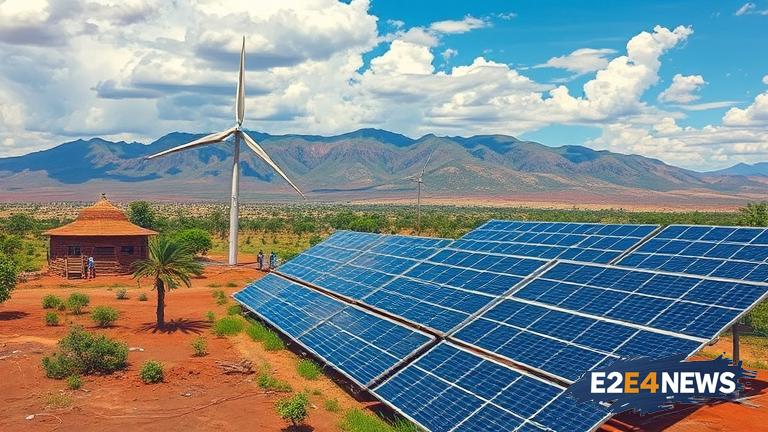The African continent is witnessing a significant shift towards renewable energy, driven by the need to address the pressing issues of energy access, climate change, and sustainable development. With many countries still struggling to provide reliable and affordable electricity to their citizens, renewable energy has emerged as a viable solution. Solar and wind power, in particular, have become increasingly popular due to their abundance and decreasing costs. Governments and private investors are investing heavily in renewable energy projects, with a focus on large-scale solar and wind farms, as well as decentralized energy systems. This trend is expected to continue, with the International Energy Agency (IEA) predicting that Africa will become a major hub for renewable energy production in the coming years. The benefits of renewable energy are numerous, including reduced greenhouse gas emissions, improved air quality, and enhanced energy security. Moreover, renewable energy can create jobs, stimulate local economies, and contribute to poverty reduction. However, the transition to renewable energy also poses significant challenges, including the need for significant investment, infrastructure development, and policy reforms. To address these challenges, African countries are working together to develop regional renewable energy plans, share best practices, and attract international investment. The African Union’s Agenda 2063, for example, sets out a vision for a sustainable and integrated continent, with renewable energy playing a key role. Similarly, the United Nations’ Sustainable Development Goals (SDGs) recognize the importance of renewable energy in achieving a low-carbon future. Despite the progress made, many African countries still face significant energy access gaps, with millions of people lacking access to modern energy services. To bridge this gap, innovative financing models, such as pay-as-you-go solar systems, are being developed to make renewable energy more affordable and accessible. Furthermore, the development of renewable energy can also support other sectors, such as agriculture, industry, and transportation, by providing reliable and efficient energy supplies. In addition, renewable energy can help to reduce energy poverty, improve healthcare outcomes, and enhance food security. The private sector is also playing a crucial role in driving the growth of renewable energy in Africa, with companies investing in renewable energy projects, developing new technologies, and creating jobs. However, more needs to be done to address the regulatory and policy barriers that hinder the development of renewable energy in many African countries. To overcome these challenges, governments, private sector companies, and civil society organizations must work together to create an enabling environment for renewable energy development. This includes developing supportive policies, investing in infrastructure, and building capacity to develop and maintain renewable energy systems. In conclusion, the renewable energy revolution in Africa is gaining momentum, driven by the need to address energy access, climate change, and sustainable development. While significant challenges remain, the benefits of renewable energy are clear, and with continued investment, innovation, and collaboration, Africa can become a leader in the global transition to a low-carbon economy.





